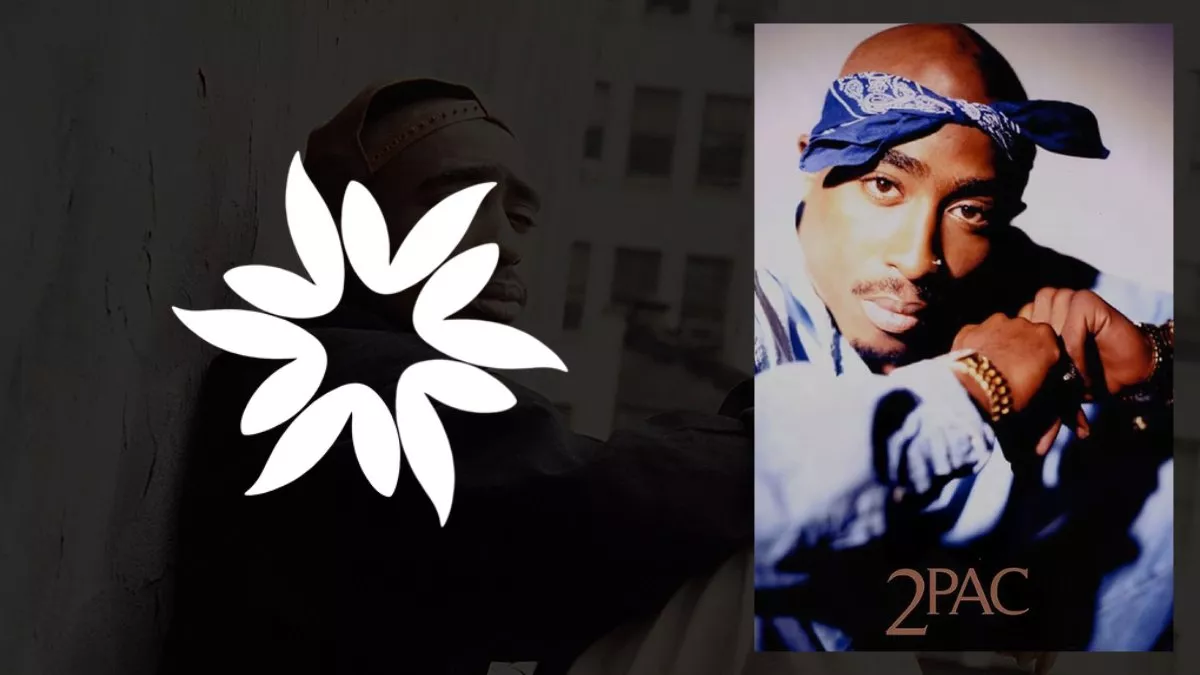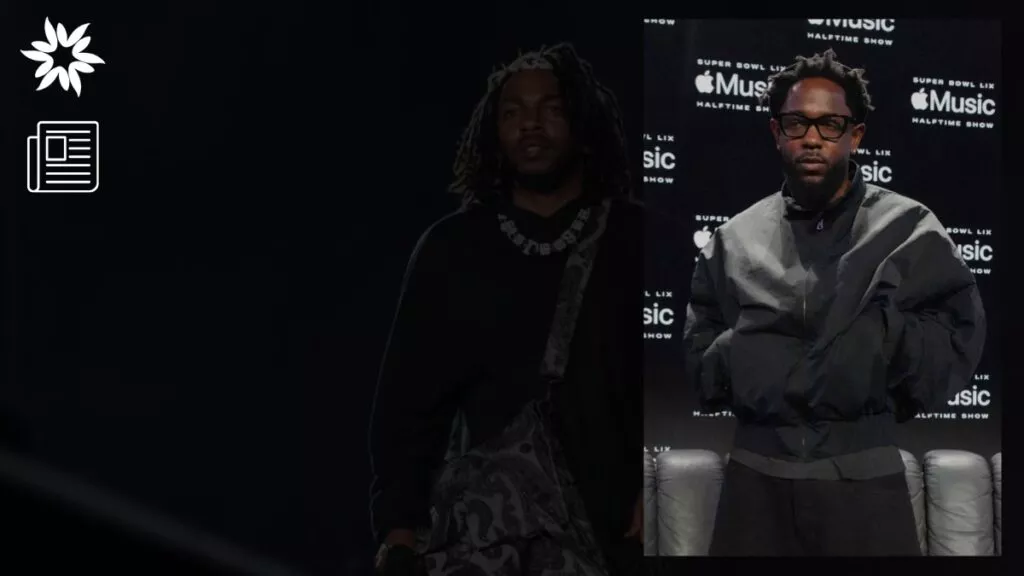Tupac Shakur, born June 16, 1971, is arguably the biggest name in rap history.
With its hard-hitting lyrics, smooth flow, and a strong sense of social justice, Tupac’s music hits home.
From being the first solo rapper to get into the Rock And Roll Hall of Fame to dropping the first-ever double album in hip-hop, he was always ahead of the game.
His beef with Biggie still gets talked about, but Tupac’s talent and legacy go way beyond that. And his best tracks prove he’s one of the greatest rappers of all time.
Key Takeaways
- Songs like "Changes" discuss real issues like racism and poverty, showing how Tupac mixed his own life stories with big social problems.
- "Dear Mama" shows his soft side, as he shows love for his mom, while "Hit 'Em Up" is one of the hardest diss tracks ever, full of anger and revenge.
- Tracks like "All Eyez on Me" and "Ghetto Gospel" show how he handled the stress of fame while still thinking about violence, redemption, and life in tough neighborhoods.
1. Changes
Tupac’s song “Changes” is one of his most thoughtful tracks, addressing big social issues like racism, police violence, and poverty.
It was released in 1998, after his death, and samples Bruce Hornsby & the Range’s 1986 song “The Way It Is.”
In a subtle yet powerful way, the piano from the original track complements Tupac’s raw lyrics, giving the song even more emotional weight, both musically and in its message.
In “Changes,” Tupac talks about the struggles Black Americans face, especially those living in inner cities.
Incredibly, he highlights police brutality, systemic racism, and the feeling of being trapped in poverty.
When he mentions Huey Newton from the Black Panther Party, who was killed in 1989, Tupac is reminding listeners that the fight for justice has been ongoing for years.
He also calls for unity in Black communities, urging people to come together to create real change and overcome these deep-rooted problems.
The song has a serious tone, and Tupac reflects on violence within the Black community, criticizing “black-on-black crime” and how it divides people.
When he says, “Some things will never change,” there’s a sense of sadness and a push for change.
“Changes” became a big hit, receiving praise and earning a Grammy nomination for Best Rap Solo Performance.
It remains one of Tupac’s best songs due to the importance and impact of its message.
2. California Love
“California Love” is a fun, party anthem celebrating West Coast hip-hop culture.
It’s one of Tupac’s biggest hits, and he released it in 1995 after he got out of prison.
The song features Dr. Dre and has a classic G-funk sound with heavy synths and laid-back beats.
It’s often seen as an anthem for California, highlighting the state’s party vibe and sunny lifestyle.
In this track, Tupac’s lyrics paint a picture of the good life in California, giving shoutouts to cities like LA and Oakland.
Throughout the song, he shows love for the state’s mix of cultures, lowrider cars, and music.
In contrast, the vibe is completely different from that of his more serious songs, which really shows Tupac’s versatility as a rapper.
The line “In the city of LA, we keep it rockin’” became iconic, and the song quickly shot to the top of the charts.
Over time, “California Love” became a lasting symbol of West Coast pride, frequently appearing in movies and TV shows.
In retrospect, the collaboration between Tupac and Dr. Dre was a pivotal moment in hip-hop, as it united two of the biggest names in the industry at the time.
3. Dear Mama
Released in 1995, “Dear Mama” is one of Tupac’s most personal songs, and it really hits home emotionally. His songs like this have cemented him as one of the greatest rappers to ever do it.
Tupac dedicated this song to his mother, Afeni Shakur, a former Black Panther who raised him as a single mom.
In the song, he talks about their relationship and the struggles she went through to raise him, even with tough things like poverty and addiction, but the main focus is on how much he appreciates and loves her.
The raw emotion in “Dear Mama” shows Tupac’s ability to be vulnerable in his music, which helped set him apart from other rappers of his time.
His message of unconditional love for his mom strikes a chord with listeners, making the song a timeless tribute not just to his mom but to all mothers who sacrifice for their kids.
This song also shows another side of Tupac—yes, he could be the tough guy, but he was also a loving son.
“Dear Mama” was a hit with critics for its heartfelt lyrics. It’s even been added to the Library of Congress’s National Recording Registry, recognizing it as culturally important.
It’s a perfect example of how Tupac could talk about universal themes like family and struggle while making it deeply personal.
4. Hit ‘Em Up
“Hit ‘Em Up” is one of the most infamous diss tracks in rap history, released by Tupac Shakur in 1996.
The song was directed at The Notorious B.I.G. (Biggie Smalls) and key members of Bad Boy Records, including Puff Daddy, Junior M.A.F.I.A., and Lil’ Kim.
By this point, the tension between the East Coast and West Coast rap scenes had been brewing for some time, and this track became a defining moment in that feud.
The context behind “Hit ‘Em Up” is deeply personal for Tupac, as he believed Biggie and his crew were involved in a 1994 attack where Tupac was shot multiple times.
No concrete evidence confirmed Tupac’s suspicion, but it fueled his anger, leading to “Hit ‘Em Up” as his act of retaliation.
The song escalated the rivalry between the coasts, including a notorious line alleging an affair between Tupac and Biggie’s estranged wife, Faith Evans.
Tupac’s venomous delivery, filled with personal insults and explicit threats, made “Hit ‘Em Up” stand out from other diss tracks.
The Outlawz, Tupac’s rap group, also contributed verses, keeping the aggressive tone throughout the track.
While the song was highly controversial, Biggie did not respond officially, though it intensified the already volatile East Coast-West Coast rivalry.
Both Tupac and Biggie were tragically murdered within a year of the song’s release, further cementing the feud’s violent legacy.
5. Hail Mary
“Hail Mary” is another key track in Tupac’s discography, but it reveals a different side of his artistry.
This track, released posthumously in 1996 as part of his Makaveli album, explores themes of vengeance, mortality, and paranoia.
Unlike “Hit ‘Em Up,” which is direct and aggressive, “Hail Mary” takes on a more haunting and reflective tone.
Throughout the track, the song features religious and apocalyptic imagery as Tupac reflects on his turbulent life and the violence surrounding him.
The title “Hail Mary” refers to a Catholic prayer, but Tupac uses it metaphorically, calling for deliverance from the chaos.
In a haunting way, the track paints a dark picture of Tupac’s mental state in his final years, expressing feelings of betrayal and impending doom.
The iconic line, “I ain’t a killer but don’t push me,” captures his struggle between self-defense and retaliation.
Musically, “Hail Mary” is slower and somber than Tupac’s other songs, adding to its eerie and contemplative mood.
The simple piano line and eerie synths provide a stark backdrop for Tupac’s reflections on life and death.
As a result, “Hail Mary” is considered one of Tupac’s most powerful works, balancing aggression with vulnerability.
6. Ambitionz az a Ridah
“Ambitionz az a Ridah” is the opening track of Tupac’s All Eyez on Me album, released in 1996.
This song is a bold declaration of defiance and resilience, which showcases Tupac’s toughness and refusal to be silenced by critics or enemies.
It was written shortly after Tupac’s release from prison and serves as a proclamation of his determination to rise above adversity.
Tupac describes his life as a notorious figure under intense media and law enforcement scrutiny.
At its core, the track reflects his ongoing anger toward the system and those trying to bring him down.
Tupac proudly embraces his outlaw image, calling himself a “ridah,” meaning someone loyal and fearless, no matter the circumstances.
The song epitomizes Tupac’s larger-than-life persona and ability to turn personal hardships into powerful music.
Driven by energy, the thumping bassline and fast-paced tempo add to the song’s urgency and intensity, making it a fan favorite.
Its rebellious spirit helped set the tone for All Eyez on Me, an album regarded as one of Tupac’s most influential works.
7. All Eyez on Me
The title track of Tupac’s All Eyez on Me (1996) highlights his complicated relationship with fame, success, and constant public attention.
Interestingly, the song captures the feeling of living in the spotlight, with everyone watching, whether fans, police, or enemies.
After signing with Death Row Records, Tupac’s life became a public spectacle, and his every move was intensely scrutinized.
Symbolically, the title “All Eyez on Me” reflects his sense of being constantly watched and the amplified love and hate that came with fame.
Tupac’s lyrics are bold. They embrace the “thug lifestyle” while describing the stress of always being in the public eye.
He raps about staying on guard against people trying to bring him down, whether cops, haters, or former friends.
It’s captivating how the song captures how Tupac viewed fame—bringing success and money but also risks like jealousy and betrayal.
Musically, “All Eyez on Me” blends West Coast G-funk with Tupac’s aggressive rap style, driven by a heavy bass beat.
The track set the tone for the rest of the All Eyez on Me album, proving Tupac’s strength in facing life’s challenges.
To this day, this album is considered one of Tupac’s best, partly because it reflects his ability to stand strong amid adversity.
8. Life Goes On
“Life Goes On,” from the All Eyez on Me album, contrasts with the more aggressive and hype songs on the record.
This track is a much more emotional and reflective tribute to the friends and loved ones Tupac lost to violence, including other gang members and people he cared about who died too soon.
It’s a moment where Tupac takes a step back and reflects on all the pain and trauma that come with losing those close to him in such a rough world.
In “Life Goes On,” Tupac shows his grief and understanding that life doesn’t stop, even after terrible things happen.
He talks about death and how short life can be, a theme that appears often in his later music as he begins to realize his own life could end at any moment.
With a deeply personal touch, the song strikes an emotional chord as Tupac speaks directly to his fallen friends and expresses hope for seeing them again in the afterlife.
One of the most memorable lines, “Bury me smilin’, with Gs in my pocket / Have a party at my funeral, let every rapper rock it,” shows that even though he knew death was part of the life he led, he didn’t want people to be sad about it—he wanted them to celebrate him.
“Life Goes On” is more laid-back than other songs on the album, with a slower beat that lets Tupac’s deep, reflective lyrics take center stage.
It reveals another side of him as an artist, showing not just the tough and defiant rapper but also someone deeply affected by the losses around him.
9. Ghetto Gospel
“Ghetto Gospel” was released after Tupac’s death in 2004 as part of his album Loyal to the Game.
The song deeply reflects life in poor neighborhoods while touching on spiritual themes.
This track is even more interesting because it was produced by Eminem and samples Elton John’s 1971 song “Indian Sunset.”
This unexpected combination blends Tupac’s raw lyrics with Elton John’s powerful music, bringing more emotional depth to Tupac’s message.
In “Ghetto Gospel,” Tupac addresses the struggles people face in urban ghettos, including poverty, drug addiction, and social problems.
He also highlights the never-ending cycle of violence and oppression, but despite his frustration, Tupac calls for peace and redemption.
Throughout the track, he shares personal reflections on his journey, admitting past mistakes while focusing on growth and spiritual development.
Tupac speaks openly about his inner conflicts, struggling with his own flaws and questioning society’s expectations around holiness.
He also references historical figures like Malcolm X and Bobby Hutton, connecting his battles to larger social movements against racism and injustice.
This historical link, for sure, adds depth to the song, which makes it both a personal confession and a commentary on broader societal issues.
“Ghetto Gospel” reached number one on the UK Singles Chart and performed well in several other countries.
Undeniably, the song’s message of trying to achieve a better life despite huge challenges resonated with many listeners, especially in the years following Tupac’s death.
10. I Wonder if Heaven Got a Ghetto
“I Wonder if Heaven Got a Ghetto” was released in 1997, a year after Tupac’s death.
The song was originally intended for an earlier album but was instead released posthumously as part of R U Still Down? (Remember Me).
In this track, Tupac asks whether the injustices people in the ghetto face in life continue in the afterlife.
He also wonders if heaven is a place free from oppression.
The song’s theme is the idea of heaven as a safe place for those pushed aside in life.
True to form, the track features Tupac’s typical style of mixing personal experiences with social commentary.
He reflects on the violence and difficult situations many of his peers endured.
At the same time, he questions if peace is possible in the next life.
As the song progresses, Tupac emerges not only as a social critic but also as someone searching for spiritual answers.
He doesn’t shy away from discussing the pain and harsh realities of life in urban areas.
However, he also expresses a deep hope for something better, not just in this life but in the next.
His questions about what happens after death connect to a larger hope that, despite life’s suffering, there might be a better future for those who have faced hardships.
Experience the Best of 2Pac: Listen to His Top Singles Now!
As we look back on Tupac’s incredible career, we see that his music continues to resonate with old and new fans.
Whether you’re a long-time fan or just discovering his music, Tupac’s catalog has something for every mood and moment.
If you’re into softer, heartfelt tracks that show Tupac’s sensitive side, give “Dear Mama” a spin—about appreciating his mom through tough times.
But if you’re craving raw energy and attitude, tracks like “California Love” and “Ambitionz az a Ridah” will make you feel unstoppable.
So, whether you want deep reflection or straight-up fire, jump into Tupac’s top singles and experience the legend firsthand!








